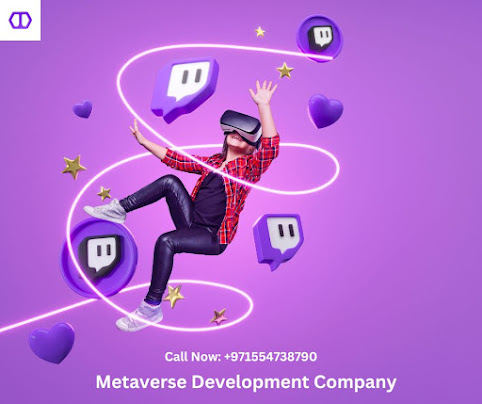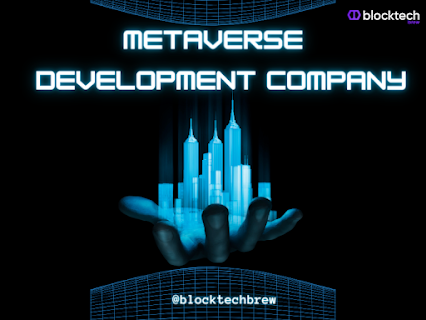The Real-World Metaverse: Bridging Physical and Digital Realities
Introduction
The term "Metaverse" has been making waves in the tech and entertainment industries, promising a virtual universe where people can interact, work, and play in a digital realm. However, the concept of the Metaverse has expanded beyond its purely virtual origins, giving rise to the intriguing concept of the "Real-World Metaverse." In this blog, we will explore what the Real-World Metaverse is, its implications, and how it is reshaping our perception of reality.
Understanding the Real-World Metaverse
The Real-World Metaverse refers to the integration of digital and physical worlds, creating a seamless blend of both realities. While the conventional Metaverse primarily exists within the confines of virtual environments, the Real-World Metaverse extends its reach into the tangible world we live in. It seeks to augment, enhance, and enrich our real-life experiences through the incorporation of digital technology, data, and interconnectedness.
Unlike the traditional Metaverse, which necessitates the use of dedicated virtual reality or augmented reality devices, the Real-World Metaverse is accessible through a multitude of everyday gadgets. Smartphones, smart glasses, wearable devices, and even Internet of Things (IoT) devices become the gateways through which we access and interact with the Real-World Metaverse.
Key Elements of the Real-World Metaverse
Augmented Reality (AR): Augmented reality overlays digital information onto the physical world, enriching our real-life experiences. AR technology allows us to view and interact with digital content, such as virtual objects, information overlays, and interactive elements, within our immediate surroundings. Popular examples include location-based AR games and navigation apps that display real-time directions on the streets.
Internet of Things (IoT): The Real-World Metaverse is closely intertwined with IoT, where everyday objects are embedded with sensors and connected to the internet. This interconnectedness allows objects to communicate with each other and with users, creating a networked environment that responds intelligently to real-time data. Smart homes, smart cities, and connected vehicles are prime examples of how IoT integrates with the Real-World Metaverse.
Digital Twins: Digital twins are virtual representations of physical objects, environments, or even people. These virtual counterparts are updated in real-time based on data collected from their physical counterparts. Industries like manufacturing, healthcare, and urban planning utilize digital twins to enhance efficiency and decision-making processes.
Mixed Reality (MR): Mixed reality merges elements of virtual reality and augmented reality to create a more immersive experience. Users can interact with both digital and physical objects simultaneously, blurring the boundaries between the real and virtual worlds. MR is often leveraged in training simulations, design prototyping, and remote collaboration.
Implications and Potential Applications
The Real-World Metaverse holds immense potential to transform various aspects of our lives, offering numerous applications across industries and daily activities:
Enhanced User Experiences: Retailers can leverage the Real-World Metaverse to provide personalized shopping experiences, where customers can virtually try on clothes or visualize furniture in their homes before making a purchase.
Revolutionizing Education: The Real-World Metaverse can revolutionize education by enabling interactive and immersive learning experiences. Students can explore historical sites, conduct virtual science experiments, and collaborate with peers worldwide.
Smart Cities and Urban Planning: With the integration of IoT and data analytics, urban planners can create more efficient and sustainable cities. Real-time data on traffic, energy consumption, and waste management can inform decision-making to enhance the quality of life for residents.
Healthcare and Telemedicine: The Real-World Metaverse can facilitate remote healthcare services, enabling doctors to diagnose and treat patients from a distance. Medical professionals can use AR and MR to perform surgeries and medical procedures with enhanced precision.
Challenges and Considerations
As with any transformative technology, the Real-World Metaverse comes with its share of challenges and considerations:
Privacy and Security: The integration of vast amounts of data from the physical and digital realms raises concerns about privacy and security. Safeguarding personal information and preventing data breaches become critical issues.
Digital Divide: Ensuring widespread access to the Real-World Metaverse is essential to avoid exacerbating existing digital divides. Bridging the gap between those with access to advanced technology and those without is vital for an inclusive society.
Ethical Use of Data: As data becomes the backbone of the Real-World Metaverse, ethical considerations regarding data collection, usage, and ownership must be addressed to protect individuals' rights and freedoms.
Conclusion
The Real-World Metaverse represents an exciting convergence of the physical and digital realms, promising transformative experiences and applications across various sectors of society. As this technology continues to evolve, it is crucial for metaverse developers, policymakers, and users to collaborate in ensuring that the Real-World Metaverse enhances our lives while respecting privacy, inclusivity, and ethical considerations. The Real-World Metaverse opens up endless possibilities, and by harnessing its potential responsibly, we can usher in an era of unprecedented connectivity and enrichment in the world around us.
Work with Leading Metaverse development company
BlockTech Brew is one of the best metaverse development companies and is headquartered in UAE. Their expert team boasts of building metaverse development platforms with feature-rich attributes and functionalities so users can get an immersive experience while browsing through the metaverse. The BlockTech Brew’s team has several experienced metaverse developers and designers who have worked with advanced technologies like AR, virtual reality, blockchain, NFTs and much more. This metaverse development company offers metaverse solutions to all types of businesses including emerging startups and large businesses.




Comments
Post a Comment